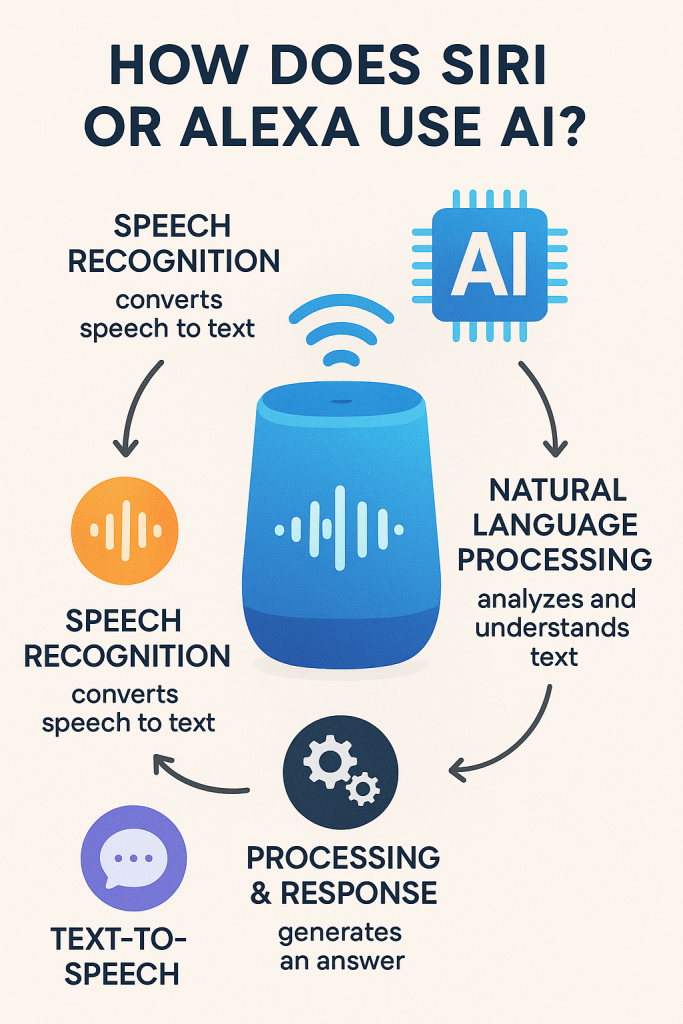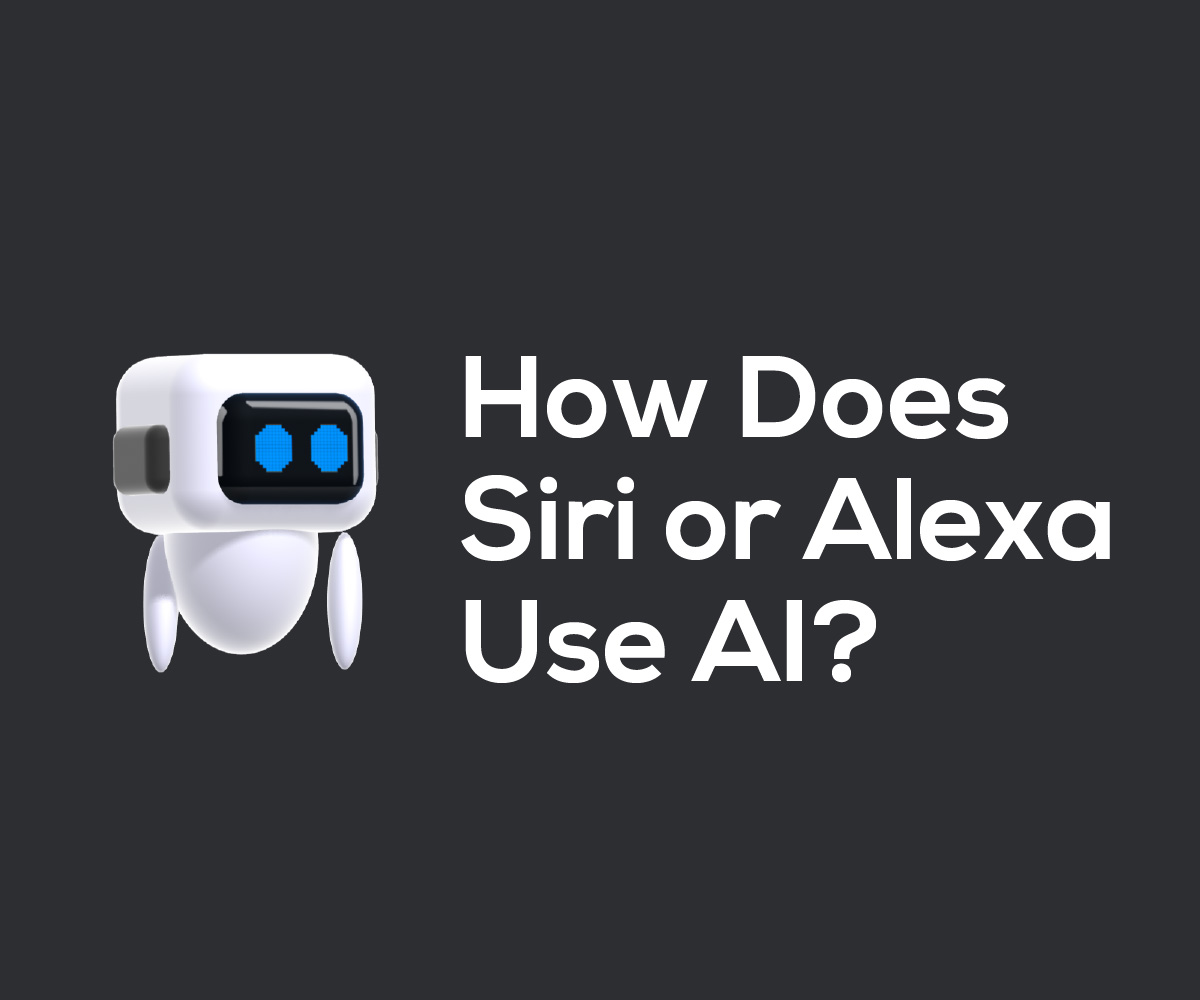Have you ever asked Siri for the weather or told Alexa to play your favorite song? It may seem like magic—but it’s really smart technology working behind the scenes. This guide will walk you through how these voice assistants understand you, learn from you, and even get better the more you use them. Don’t worry—it’s all explained in plain, simple terms, no tech background needed.
Table of Contents
✅ Key Takeaways
- Siri and Alexa use AI to understand and respond to your voice.
- They learn your preferences to give you more personalized help.
- The more you use them, the smarter they become.
- You don’t need to be tech-savvy to benefit from these tools.
How Siri and Alexa Use AI
Let’s break it down into three main parts: voice recognition, personalization, and learning over time.
1. Voice Recognition: Understanding What You Say
When you say, “Hey Siri” or “Alexa,” the device wakes up and starts listening.
Here’s what happens:
- Listening for a “wake word”: The assistant is always listening for its name, like “Siri” or “Alexa,” but it doesn’t record anything until it hears that word.
- Turning speech into text: After the wake word, your voice is turned into text. For example, “What’s the weather today?” becomes words the device can read.
- Figuring out what you mean: The assistant then uses AI to understand what you’re asking. Is it a question? A command? A reminder?

🗣️ Real-life example:
You say, “Set a timer for 10 minutes.” Siri understands the command and starts a countdown without you needing to press any buttons.
2. Personalization: Getting to Know You
Over time, voice assistants learn your preferences so they can respond in a way that suits you.
Here’s how it works:
- Learning your routines: If you always ask for the weather at 7 AM, Alexa might suggest the forecast without being asked.
- Recognizing different voices: These assistants can learn to recognize who’s speaking, which helps them give the right answers to the right person.
- Adjusting to your habits: If you prefer jazz at dinner, Siri might start playing jazz when you say “Play dinner music.”
🎵 Real-life example:
You say, “Call my daughter.” Because Siri knows your voice and your contact list, it calls the right person every time.
3. Learning Over Time: Getting Smarter with Use
The more you use Siri or Alexa, the better they get at helping you.
- Remembering your choices: They keep track of your past requests to suggest things you might like.
- Improving accuracy: If you correct them (“No, I said ‘play Beatles’ not ‘beetles’”), they adjust and learn from it.
- Updating automatically: These assistants get regular updates to improve how they understand and respond.
💡 Real-life example:
You once asked Alexa for a lemon cake recipe. Next time, she might suggest a similar recipe when you ask for dessert ideas.
Final Thoughts
Siri and Alexa are more than just fun gadgets—they’re smart helpers that use AI to make your day a little easier. They listen, learn, and adjust to your needs, all without you having to be a tech expert. As you keep using them, they’ll keep getting better at helping you. And remember—there’s no harm in exploring what else they can do. You might be surprised how useful they can be!
